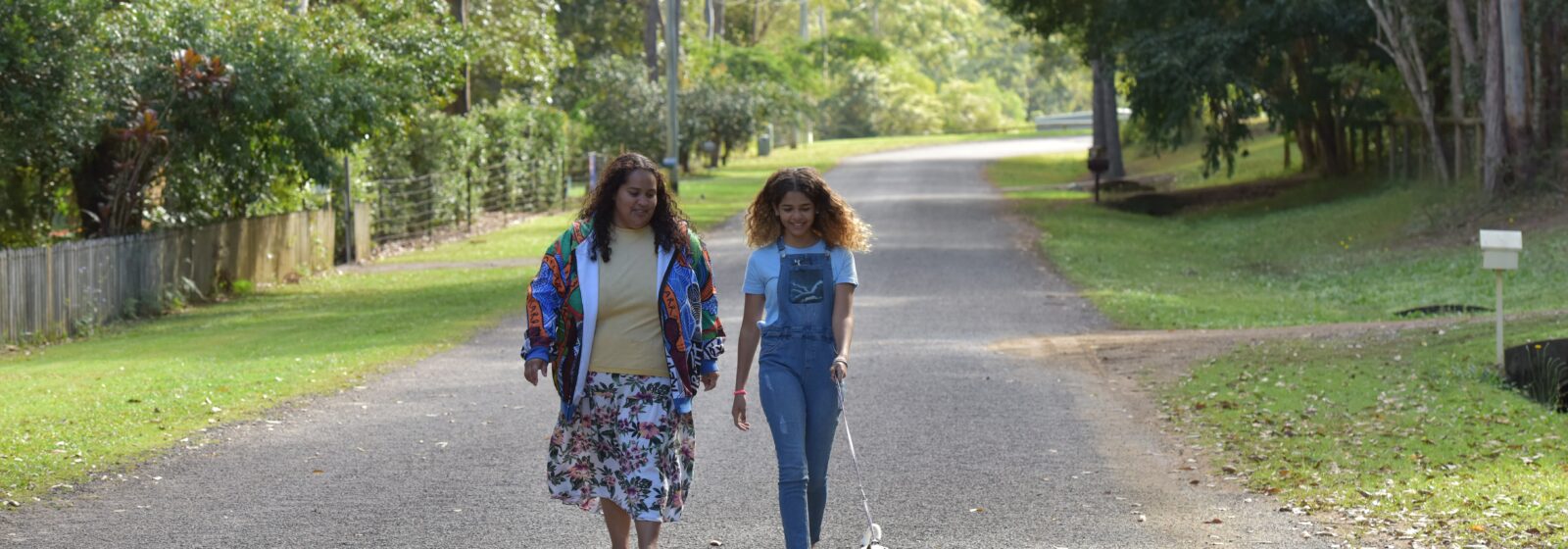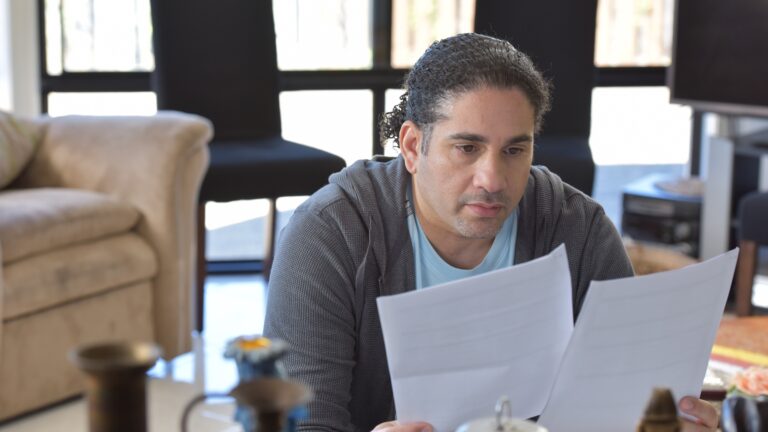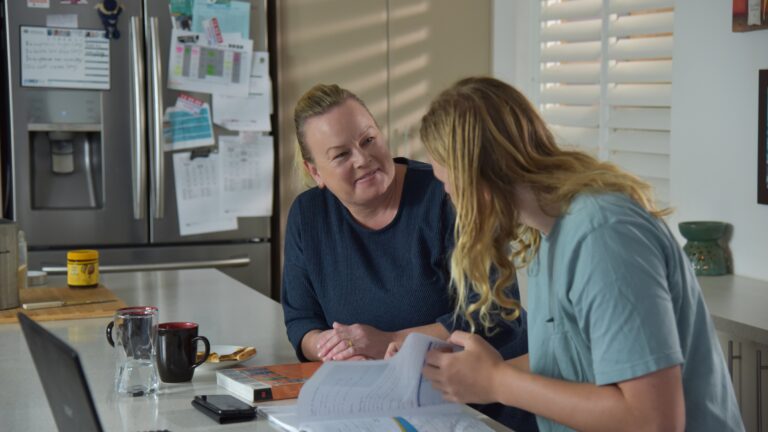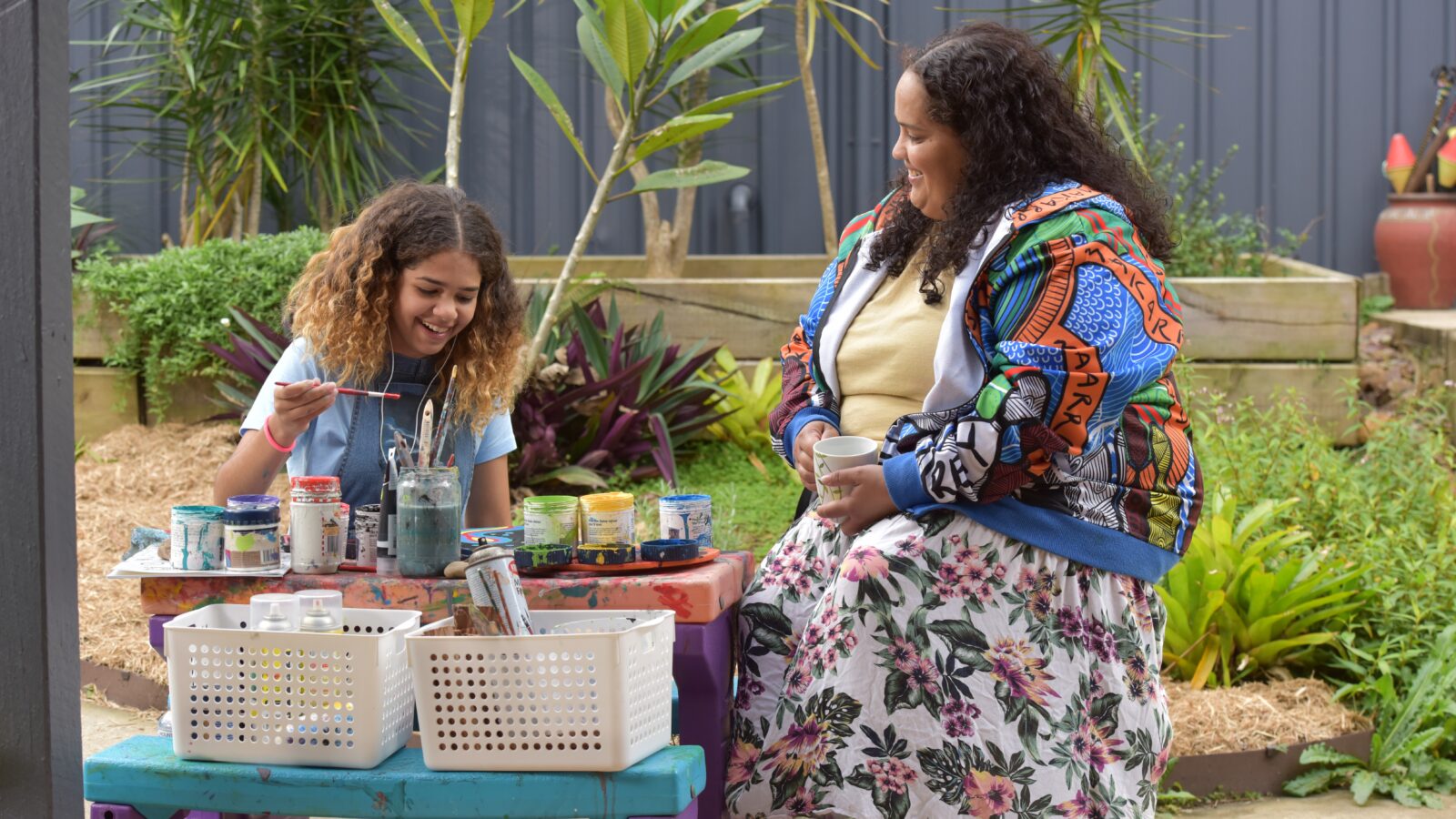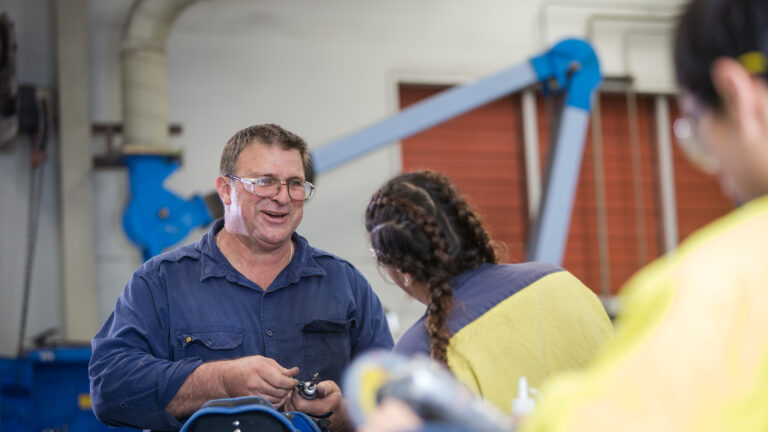By looking at the way we think about school and success, we can help our teens find their own learning pathway through school and beyond. It’s important to remember that there are many pathways from school, such as further study and training, work experience or employment.
For students in Year 10, a Senior Education and Training (SET) Plan will be developed in consultation with you and your teen. The SET Plan supports your teen’s ongoing journey to finding out who they are and what they want to focus on. The SET planning process involves looking at personal strengths and interests, pathways options, the subjects or courses that they plan to do in senior years, and the strategies they can use to achieve their education and career goals.
For teens who are looking to identify their skills better and discover how they could turn their spark into a possible career path, they can explore MyFuture or visit We the Differents to ‘find their different’. Exploring career pathways information from QTAC is another great starting point. To learn more about the Australian Tertiary Admission Rank (ATAR), check out this article.
Let’s delve into the different types of education options for your teen and how they can help get them to where they want to be.
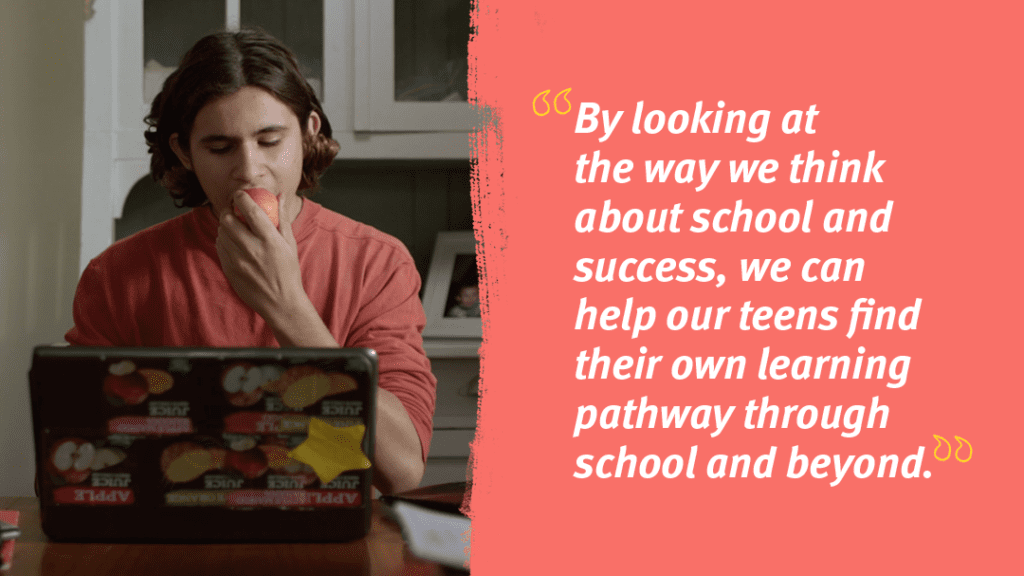
Queensland Certificate of Education (QCE)
What it is
The QCE is Queensland’s senior secondary schooling qualification, awarded by the Queensland Curriculum and Assessment Authority (QCAA). It is recognised globally as evidence of your teen’s senior school achievements. Students earn credits for the learning they complete from a range of learning options, including QCAA senior syllabuses, Vocational Education and Training (VET) qualifications and many other recognised studies. To get their QCE, they need to earn at least 20 credits, meet the literacy and numeracy requirements and ensure 12 credits are from the completed Core category of learning. They can check out We the Differents’ Ultimate QCE Survival Guide for more info.
How it can help your teen
Pursuing a QCE paves the way for your teen’s future success, whether they plan to further their studies, acquire a trade, or secure employment after Year 12. While it doesn’t automatically grant an ATAR, it establishes a strong foundation for various pathways.
Queensland Certificate of Individual Achievement (QCIA)
What it is
Designed for students that have a history of completing individual learning programs throughout their secondary schooling. The QCIA may be suitable for students with disabilities that affect learning and recognises the achievements of students who are on individualised learning programs. It doesn’t contribute towards a QCE; however, QCIA students can undertake some QCE contributing studies at school and continue working towards getting a QCE after school if that’s their goal.
How it can help your teen
The QCIA offers an official record that the student has completed at least 12 years of education and provides a summary of a student’s skills and knowledge. It is valuable for presenting to potential employers and training providers as it gives them an idea of the best options available to your teen in the workplace.
Australian Tertiary Admission Rank (ATAR)
What it is
The ATAR certifies Queensland Year 12 students for tertiary education entry, particularly for those seeking direct university admission. It is the standard pathway for tertiary admission in Queensland. There are many ways to get an ATAR, so for more information, the ATAR guide provided by QTAC is a great place to start. A student’s ATAR rank indicates where they sit in relation to their peers of the same age group in any given year. The scale goes from 99.95 down to 0.00.
How it can help your teen
Tertiary institutions use this percentile rank to select students and place them in merit order. As the number of applications for some tertiary courses can outnumber the allocation of spots in the course, they will select students based on their ATAR position. While prerequisites for specific courses are essential, a higher ATAR increases their chances of admission. Remember, an ATAR isn’t the sole pathway to tertiary education. You can read more about alternative ways to enter tertiary education here.
Vocational Education and Training (VET)
What it is
VET courses provide students with a range of learning opportunities and career pathways to pursue both in and out of school. VET enables students to gain qualifications for employment, through nationally recognised training, and is designed to help them develop the skills they need to enter and succeed in the workplace. There are many different industries students can enter through VET, including aeroskills, hairdressing and beauty, health, tourism, travel and hospitality, information and communications technology, printing and graphic arts, agriculture, horticulture and land and conservation, business services, and maritime.
School-based apprenticeships and traineeships (SATs) provide students in Years 10, 11 and 12 with employment-based training while continuing full-time enrolment in a school program and study towards a QCE or QCIA. A SAT allows your teen to start learning valuable workplace skills and getting hands-on experience while completing their final years of schooling with their peers.
How it can help your teen
VET courses can be completed as a form of tertiary studies delivered in schools that are registered training organisations (RTOs) or through other RTOs, such as TAFE and private training providers. VET qualifications can be undertaken in Years 10, 11 and 12 and counts towards getting QCE credits or even contribute towards an ATAR.
SATs provide options such as certificates, trades, apprenticeships and diplomas that can give your teen certified experience straight away. It can either prepare your teen for further studies they wish to pursue or entry into the workforce.
If a young person doesn’t receive the ATAR they need for entry into their preferred tertiary course, they can still achieve their chosen pathway by completing an approved bridging course. For info on bridging courses and the relevant institutions you can visit the QTAC website for more information.
What can I do?
As your teen navigates this important SET planning phase, having the right support and guidance can make all the difference. Some people have clear ideas about what they want to do and some of us take longer to figure that out. You can help your teen by encouraging them to decide based on their own interests, strengths and passions and reminding them that whichever pathway they choose, it’s not set in stone. Encouraging your teen to explore as many options as possible before making a decision (rather than pressuring them to choose one specific path), can allow them to find what works for them and discover possibilities they may not have considered before.
You can also give your teen some prompts to get them thinking. For example, “What are you most passionate about?”, “Which jobs sound exciting to you?”, “Where do you think your strengths lie and how might they be useful in a workplace?’, “What subjects are you most interested in at school?”. These questions can give them food for thought and help to simplify the decision-making process if things are getting on top of them. Sometimes, your teen may not be looking for solutions but rather a listening-ear or shoulder to lean on. Explaining that it’s normal to feel stressed sometimes and that you’re there for support can help them to feel heard and know that they can ask you for guidance.
More information
If your teen doesn’t know where to start, there are plenty of resources available to get the ball rolling. They can visit We the Differents to see what some recent graduates have to say about their experience and find relevant stories or information that your teen may find helpful in their own journey. Sometimes they may be more open to hearing advice that is coming from people who have shared the same experience and can relate to their current situation.
- QTAC for more detailed info on tertiary study options.
- YourCareer.gov.au is a national directory of training courses.
- Myfuture.edu.au provides resources to explore career pathways and tools to develop self-knowledge to help with career decision-making.
- The National Careers Institute provides information for planning careers, including finding a course.
- The Queensland Department of Education website has useful information about VET in schools, including SATs.
Last Updated: 12 November 2023

